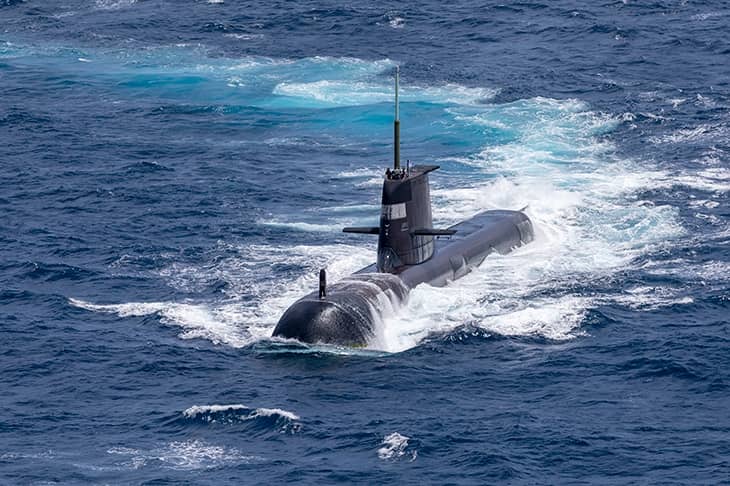Just weeks after the denouement of the West’s misadventure in Afghanistan, Boris Johnson is again committing Britain to a risky international venture. Aukus, the naval partnership between the United States, Australia and the United Kingdom, appears to tie Britain to an Indo-Pacific strategy that is militarily and geopolitically flawed.
In December 1941, the catastrophic sinking of the then imperious new battleship HMS Prince of Wales along with the battlecruiser HMS Repulse off the coast of Malaya led to the loss of Singapore and brought the curtains down on Britain’s Asian Empire. Britain was over-stretched and unable to commit resources to the defence of the Pacific.
History rarely repeats itself exactly. Nevertheless, it must be asked whether Britain, which is a relatively far weaker power now than in 1941, is again risking overreach in committing itself to the Indo-Pacific.
Since the rise of Xi Jinping and the development of his increasingly expansionist naval policies in the South China Sea, the need to contain China has become self–evident. The problem for the West is the question of whose task this is.
Aukus adds to a confusing smorgasbord of alliances competing to stand up to Xi. There is the Quad (US, Japan, Australia and India), the TPP (the Trans-Pacific Partnership) and Five Eyes (an intelligence alliance comprising Australia, Canada, New Zealand, the UK and the US). In addition, there are bilateral military relationships such as that between India and Japan. However there is no Asian Nato to coordinate China’s putative enemies.
Aukus has sowed further division. The secret submarine deal effectively stitched up France. On a scale of one to ten, France’s upset is 12. This was hardly a way to treat an ally which has consistently committed naval resources to the Indo-Pacific since 2013.
The gloating in some British conservative circles about sticking it to Macron is puerile. Despite the French President’s equally silly ‘Bash Britain for Brexit’ antics, at some point both sides have to address the need for mutual security relationships. There are enemies closer to home than China.
China does not stand alone. Totalitarian, expansionist Russia is not an insignificant junior partner. In terms of naval tonnage, Russia (927,000 tons) ranks only marginally behind China (973,000 tons). By comparison, Britain has 367,000 tons and France has 321,000 tons. Would it not make sense for Europe to focus its naval defence on waters closer to home?
The British navy is stretched as it is. Our carriers are short of aircraft and personnel. Our six newish Type 45 destroyers spend most of their time in dock. Similarly, Britain’s new carriers have been riddled with design faults and technical problems.
As it stands, the navy lacks the ships to adequately protect its carriers. Falklands-era frigates are yet to be replaced by Type 26 frigates; the first batch of three are not expected to be deployed for four years. Alarmingly, there are chronic problems in the Royal Navy’s new communications systems. The idea that a British fleet, stationed in the Pacific and untethered from its home ports, could be viable, is simply absurd.
And what does the UK get out of the divisive Aukus deal? Despite the UK rushing to help the US in the Indo-Pacific, Nancy Pelosi has declared, subsequent to the Aukus announcement, that there will be no trade deal until the UK toes the US-EU line on Northern Ireland.
It is hard to disagree with France’s assertion that the UK has become America’s supplicant lapdog. At least we now know what global Brexit means: not trade, but the sending of gunships around the world to give fig-leaf cover to America’s largely unilateral foreign policy.
Are American and British geopolitical aims even in alignment? Would the UK join the US in a war with China over Taiwan? It is unclear. Taiwan was inexplicably and worryingly absent from the government Strategic Defence Review in March.
It would be better for Britain and France to focus on deterring Russia. Indo-Pacific security should be left to the navies of the US, India and Japan. They have the might and the motive to keep the peace in the South China Sea. Britain simply doesn’t.






Comments